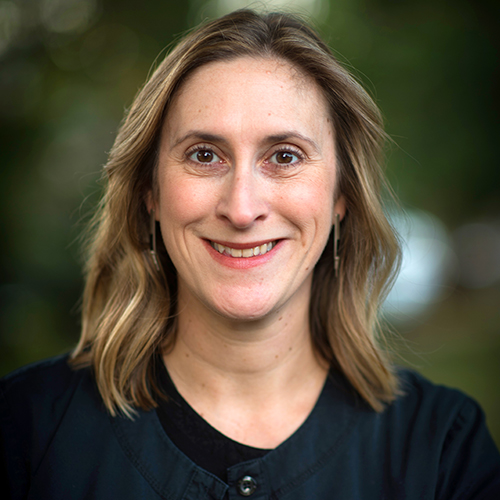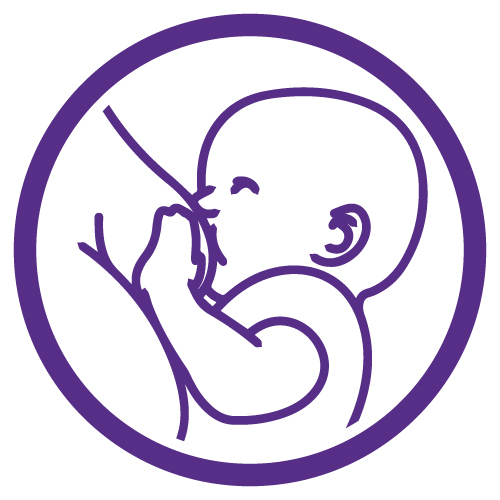 IBCLC Detailed Content Outline: Clinical Skills / Equipment and Technology Focused CERPs - Section VII A
IBCLC Detailed Content Outline: Clinical Skills / Equipment and Technology Focused CERPs - Section VII A
Access CERPs on Clinical Skills / Equipment and Technology for the IBCLC Detailed Content Outline recertification requirements. On-demand viewing of the latest Clinical Skills / Equipment and Technology focused IBCLC CERPs at your own pace.

A Case Study Approach to Critical Thinking Skills for Lactation Professionals

Melissa Cole, MS, IBCLC, RLC is a board certified lactation consultant, neonatal oral-motor assessment professional, and clinical herbalist in private practice. Melissa has been passionate about providing comprehensive, holistic lactation support and improving the level of clinical lactation skills for health professionals. She enjoys teaching, researching and writing about wellness and lactation-related topics. Melissa holds a bachelor of science degree in maternal child health and lactation consulting and her master’s work is in therapeutic, clinical herbalism. Melissa actively conducts research and collaborates with several lactation and health care professional associations. Before pursuing her current path, Melissa’s background was in education and cultural arts, which has served her well in her work as a lactation consultant and healthcare educator. She loves living, working and playing in the beautiful Pacific Northwest with her 3 children.
Topic: Beyond Fenugreek: An Individualized Approach to Dietary and Herbal Galactagogues - [View Abstract]
Topic: Beyond the Basics of Latch: Support Strategies for Helping Babies when the Basics Aren’t Enough - [View Abstract]
Topic: Common Infant Digestive Health Concerns and Useful Support Strategies - [View Abstract]
Topic: Connection and Care: Virtual Support for Tongue-Tied Infants - [View Abstract]
Topic: Feeding is Movement: Activities for Supporting Optimal Infant Oral Function - [View Abstract]
Topic: Infant Gut Health: Common Concerns and Useful Support Strategies - [View Abstract]
Topic: Infant Oral Assessment: Exploring Anatomy and Function Beyond the Frenulum - [View Abstract]
Topic: Low Milk Production Detective Work: Assessment and Care Plan Considerations - [View Abstract]
Topic: Nature’s Nurturers: Plant Medicine for Perinatal Mental Health - [View Abstract]
Topic: New Thoughts on Infant Pre and Post-Frenotomy Care - [View Abstract]
Topic: Placenta Medicine as a Galactogogue: Tradition or Trend? - [View Abstract]
Topic: Thinking Critically About the Use of Clinical Lactation Tools - [View Abstract]
Topic: Will It Hurt? Frenotomy Aftercare Strategies to Optimize Healing Outcomes for the Newborn - [View Abstract]
There are many reasons infants struggle to latch and feed well. Critically thinking through a case involves assessing all the variables that may be impacting feedings. This is no easy task when we must consider what is going on on the parent's side and the infant's side. How can we put all the pieces of a complex case together in order to be an effective lactation detective? This interactive session is designed to help providers implement critical thinking skills in order to think outside the box when it comes to difficult cases. Walk through the cases with me and put your skills to the test!
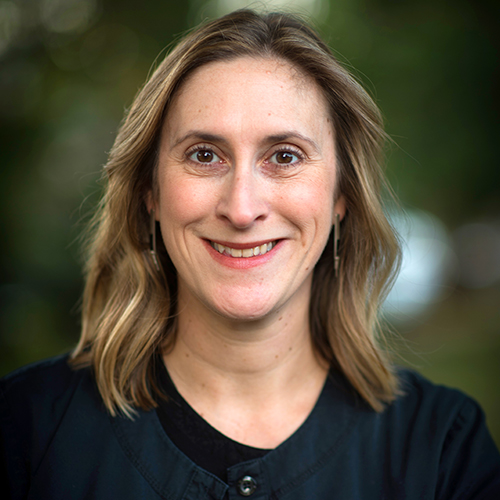
View Details / Enroll
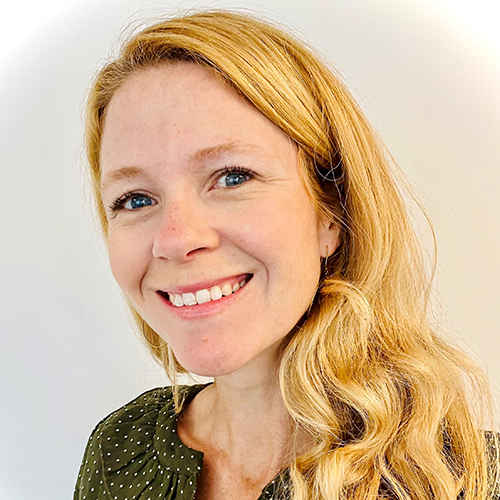
At-Breast Supplementation: Practical Tips for Using a Variety of Supplemental Feeding Tube Devices

Johanna Sargeant is an International Board Certified Lactation Consultant, teacher and writer based in Zurich, Switzerland. She is passionate about utilising her background in education, biological science, psychology and language to empower parents with empathetic support and evidence-based information through her private practice, Milk and Motherhood.
Originally from Australia, Johanna provides much-needed English-speaking support to many thousands of parents throughout Switzerland and across Europe, and has recently been writing new education modules for the European Society of Paediatric Research and the European Society of Neonatology. She has taught at the University of Zurich, has spoken as a panelist for the WHO's Baby Friendly Hospital Initiative congress in Geneva, has been an expert speaker and facilitator for Google, and has presented at a wide variety of international conferences. The complexities of her personal feeding experiences fuels her passion for providing knowledgeable, guilt-free infant feeding support globally.
Topic: Mastering Lactation Conversations: Creating Successful and Achievable Care Plans - [View Abstract]
Topic: Seeing the Bigger Picture: Finding Clues in Our Breastfeeding Clients' Surroundings - [View Abstract]
Topic: When Evidence and Empathy Aren't Enough: Changing Your Lactation Practice to Boost Client Success - [View Abstract]
Using an at-breast supplementer is often thought to be annoying, complicated and unsustainable -- but it doesn't have to be! While many lactation consultants are aware of the benefits of supplementing directly at the breast, many admit to feeling overwhelmed, and few actually use it with their clients. With this presentation, you will learn the specific benefits and barriers to this form of supplementation, view demonstrations of a variety of these devices, and learn some tips and tricks to make this at-breast supplementation feasible and sustainable for families. We all need to feel comfortable recommending and teaching the use of these tools, enabling us to foster the best overall health for the families we support.
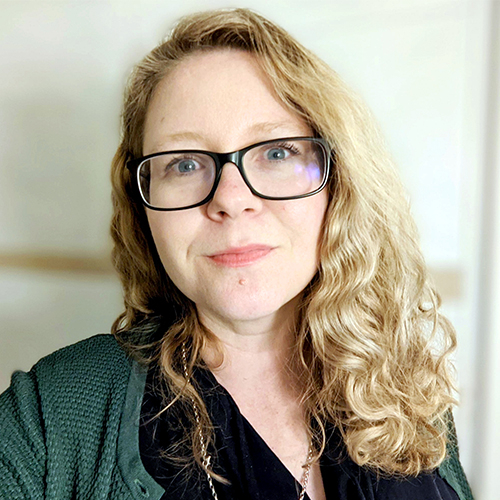
View Details / Enroll
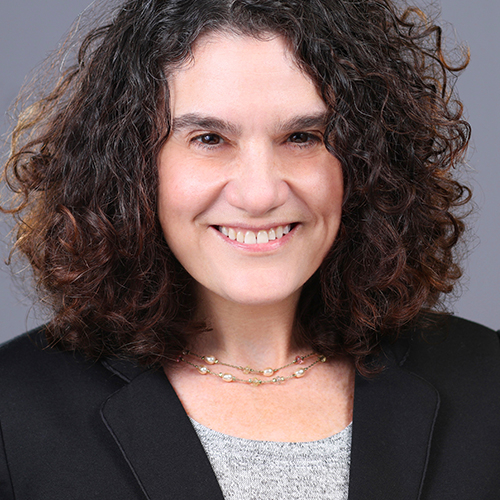
Babies With Suckling Dysfunction: Assessment and Coordination of Care

Leslie has been providing lactation support in Central New Jersey for over 18 years - as a La Leche League (LLL) leader since 2002, an IBCLC at Mercer County WIC from 2014 to 2016, and as a private practice IBCLC since 2011.
Leslie grew up in New York and New Jersey. She graduated from Cook College/Rutgers with a BS in Biochemistry, and from Rutgers University/UMDNJ with a PhD in Biochemistry and Molecular Biology. Leslie's difficulties with early breastfeeding, the help she received from LLL, and challenges with returning to work laid the foundation for her understanding of the importance of skilled and compassionate lactation and infant feeding support.
Topic: Untangling the Big Picture of Tongue-Tie Assessment - [View Abstract]
IBCLCs assess chest/breast and bottle feeding skills and infant’s oral and body anatomy, and the motions that contribute to, or inhibit, the process of feeding as well as post-feeding comfort (digestion and elimination for infant, breast comfort for parent). When infants present with feeding dysfunction, the root of the issue could be from a variety of sources - effects of in utero positioning, prematurity, effects of birth interventions, tight frenulum (ties), asymmetric/tense muscles/fascia, neurological/ reflexive issues, low/high muscular tone, or suckling discoordination, suck-swallow-breathe discoordination, laryngomalacia, compensations for low supply, cleft lip/palate, and more. IBCLCs help families navigate the differential assessment of feeding dysfunction, and at the same time support the family’s feeding and milk supply choices.
This presentation will examine the role of the IBCLC when suckling dysfunction is occurring - for example aiding with latch and bottle feeding, oral/body exercises, referrals for oral evaluations and/or bodywork, or help with frenotomy pre/post work if needed. IBCLCs adjust the care plan as the infant’s feeding skills and parents’ goals grow and change. Developing the skills to aid oral function, and coordinate with specialized practitioners to aid this process, is crucial in order to determine the best course of clinical care, meet the families needs, and allow for the best possible outcome.
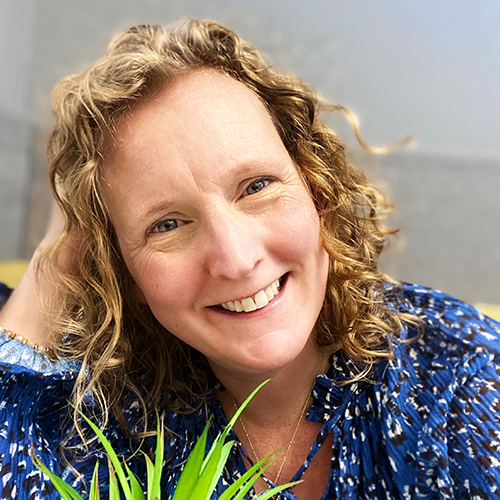
Being Mindful: Case Studies of Mindfulness Tools in Clinical Lactation Practice

Anna Le Grange is an International Board Certified Lactation Consultant, Registered Pediatric Nurse, Mindfulness teacher and Author. She has worked with new families for over 20 years in a variety of clinical roles. Anna brings her passion for psychology, neuroscience and mindfulness into her lactation support work and facilitates other professionals to incorporate emotional well-being tools into their own lactation practice. Mother to 3 children, Anna breastfed her 3rd child following breast reduction surgery and experienced first-hand, the emotional challenges that so often relate to infant feeding complexities. She used her personal experiences alongside mindfulness and lactation knowledge, to create a toolbox of techniques for breastfeeding families, which she includes in her courses and book, The Mindful Breastfeeding Book. Anna believes whole-heartedly in prioritizing calm and connection within our breastfeeding support practices, both for our clients and ourselves. Anna is currently studying for a MSc in Positive Psychology at Buckingham New University and has spoken at various events including the Gold Lactation, ILactation Conference and Nurturing The Future.
Topic: Being Mindful: Case Studies of Mindfulness Tools in Clinical Lactation Practice - [View Abstract]
Topic: Breast/Chestfeeding After Breast Reduction - [View Abstract]
Topic: Working With Anxious Parents and Fussy Babies - [View Abstract]
Bringing self-awareness and self-compassion into our work as healthcare professionals and lactation supporters, enables us to thrive in the work that we do and offer a higher quality and more ethical service to struggling clients. The case studies shared in this presentation offer a unique look at how mindfulness and self-awareness can be used to help navigate the complexities of each case. Learn more about the ways that stress in the feeding parent can impact lactation, how to identify the emotional considerations of a client’s situation, mindful breastfeeding tools and ways that providers can meet their own needs while working on challenging cases.
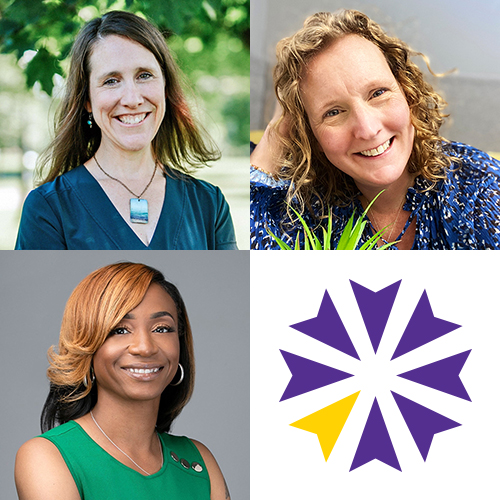
View Details / Enroll
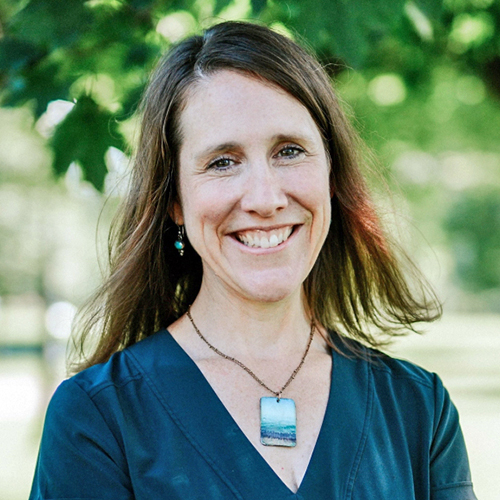
Breastfeeding as Movement: Case Studies on Posture, Movement and Reflexive Function in Complex Feeding Challenges

Allyson is a physical therapist, International Board Certified Lactation Consultant and co-owner of Nurture Columbus, in Columbus, Ohio. She completed a Bachelor’s degree in Biology from Ohio University in 1997, and Master of Physical Therapy degree from Northwestern University in 1999. After having a child in 2007, she volunteered as a La Leche League leader. She discovered a love for supporting new parents but a gap in lactation care, which led her to become an IBCLC in 2014. Her clinical approach to identifying and overcoming feeding challenges is unique with physical therapy foundations in posture, movement and reflexive function. Through presentations she endeavors to engage IBCLCs to know more about movement as related to human lactation, and PTs to learn about breastfeeding/chestfeeding as related to human development. As past-president (2019-2021) of the Ohio Lactation Consultant Association, she also advocates for equitable access to and health plan coverage for lactation care.
Topic: Neuroanatomy and Biomechanics: Breastfeeding as a First Movement Milestone - [View Abstract]
Knowledge of neuroanatomy, reflexes, and biomechanics as related to breastfeeding is essential to IBCLC competency. This presentation will define breastfeeding in terms of posture, movement, and reflexive function. Examples of neuromuscular dysfunction that impair breastfeeding will be provided through a series of case studies with emphasis on dissipating stress while empowering families with strategies to optimize movement essential to breastfeeding success. The presentation will build on the definition of breastfeeding as a first movement milestone strengthened through interactive tummy time at a most basic level, and through ongoing movement related assessment and treatment as necessary for complex feeding challenges. Also addressed will be some new research on pressure to breastfeed. Awareness of how IBCLC care might be perceived is important for establishing trust among families seeking it and the healthcare community referring to it.

View Details / Enroll
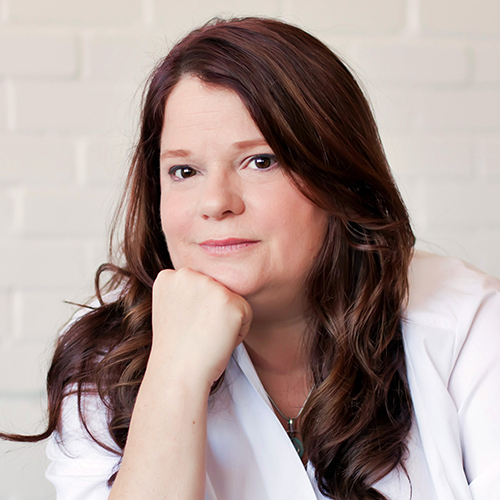
Breastfeeding by the Numbers: What do They Mean and When are They Useful?

Barbara D. Robertson, IBCLC, has been involved in education for over 34 years. She received a Bachelor’s degree in Elementary Education in 1988 and her Master’s in Education in 1995. Barbara left teaching elementary students in 1995 to raise her two children. Barbara is now the Director of The Breastfeeding Center of Ann Arbor and of the brand new business LactaLearning.
The Breastfeeding Center of Ann Arbor will still continue to serve breast/chestfeeding families and now LactaLearning will be dedicated to all of Barbara’s professional lactation trainings. Barbara has developed two 95 hour professional lactation training, a group training and a completely self study training with Nancy Mohrbacher. Barbara’s idea of creating professional book groups has exploded with her hosting Making More Milk with Lisa Marasco, Supporting Sucking Skills with Cathy Watson Genna, Breastfeeding Answers, 2nd Edition with Nancy Mohrbacher, and new for the fall, Safe Infant Sleep with Dr. James McKenna. Barbara will be hosting a one day online conference in the fall with Lisa Marasco and Cathy Watson Genna using all of her tech savvy skills to make this a one of a kind experience. Barbara is also a speaker for hire on a wide variety of topics including Motivational Interviewing. Barbara volunteered for the United States Lactation Consultation Association as the Director of Professional Development for 4.5 years.
She just retired as Associate Editor for Clinical Lactation, a journal she helped create for USLCA. Barbara has free podcasts, a blog, and Youtube videos which can all be found on her websites lactalearning.com and bfcaa.com. She has written many articles as well. She loves working with parents and babies, helping them with breast/chestfeeding problems in whatever way she can.
Topic: Breastfeeding: Baby’s First Milestone - [View Abstract]
Topic: Clinical Assessment and Management of Low Milk Production - [View Abstract]
Topic: Deconstructing Online Messaging: Ethical Considerations - [View Abstract]
Topic: Milk Sharing and Milk Banking: Building Knowledge for Better Outcomes - [View Abstract]
Topic: The Baby's Not Gaining Weight! Now What? - [View Abstract]
Topic: The Great Nipple Shield Debate - [View Abstract]
Numbers are used all the time in the lactation field. Test weights, percentiles, % of weight gain, are just some of the information that is gathered to help make infant feeding decisions. But what are they really telling us? When are they useful? Using these numbers in a way that actually helps support and promotes breastfeeding are key. Appropriate infant weight gain, how to do a test weight, scale calibration, calculating infant intake, and the possible need for supplementation, will all be covered.
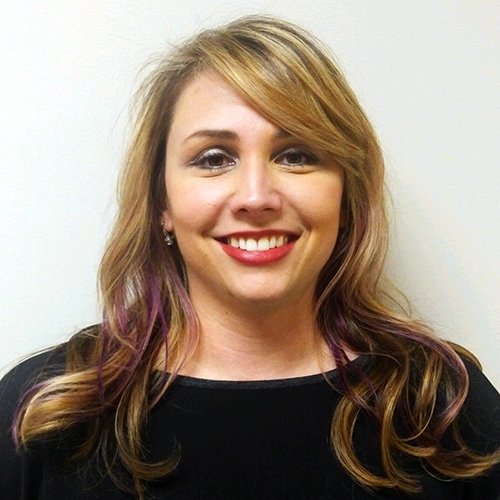
Breastfeeding Medically Complex Infants in the Neonatal ICU

Amber Valentine is a Speech-Language Pathologist who graduated from the University of Kentucky with her MS in Communication Disorders. She is a Board Certified Specialist in Swallowing and Swallowing Disorders and an International Board Certified Lactation Consultant, as well as a Certified Neonatal Therapist (CNT). She worked for Baptist Health Systems, Inc for 8 years before moving to Florida where she worked for Wolfsons Children’s Hospital and Mayo Florida. She is now back in Kentucky working for Baptist Health Lexington. She has experience in adults and pediatrics with feeding and swallowing difficulties including: bedside swallow evaluations, Modified Barium Swallow studies, FEES, and pediatric feeding evaluations including NICU. She has experience with head and neck cancer patient including evaluation and treatment of swallowing difficulties, PMV use, and voice after total laryngectomy including TEP. She has provided guest lectures for the University of Kentucky, Eastern Kentucky University, and the University of Louisville on feeding and swallowing topics. She has presented at the hospital, local, state, national, and international levels on pediatric feeding/swallowing and breastfeeding.
Topic: Breastfeeding Medically Complex Infants in the Neonatal ICU - [View Abstract]
Topic: Building a Successful Breastfeeding Program in the NICU: Challenges and Practical Solutions - [View Abstract]
Feeding is the most complex task of infancy, even in term babies with no complications. There are many diagnoses, conditions, syndromes, and co-morbidities that can impact feeding in neonates and infants. This talk will briefly highlight many of those, but we will focus on three specific populations of interest –Cleft lip and palate, Infants of Diabetic Mothers, and Down Syndrome. We will discuss the specific implications these conditions can have on feeding, why these infants may have difficulty, and the classic symptoms one could expect to see. The differences between delayed and disordered feeding will also be addressed. Strategies and adaptions for both breast and bottle feeding will be discussed. Positioning, nipple flow rate, and external strategies will be explained. Case studies will be shared at the end of the presentation.

View Details / Enroll

View Details / Enroll
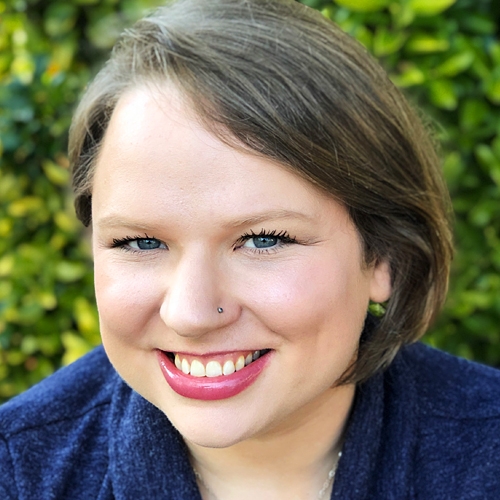
Breastfeeding Without Nursing: Why Do Some Breastfeeders Exclusively Pump and What Can We Do to Support Them?

Fiona Jardine is a PhD candidate at the University of Maryland’s iSchool where she is conducting pioneering research into the experiences of those who exclusively pump human milk, specifically focusing on the information they need, how they find it, and what they do with it. In addition, she is able to provide insights into many different aspects of exclusive pumping thanks to the breadth of the data she collected; follow along with her findings here: bit.ly/EPresearch. Fiona is also an Advanced Lactation Consultant and a postpartum doula so that she can provide the support that she believes is so desperately needed, especially in the fourth trimester. Find out more about Fiona, and the Universal Breastfeeding Symbol she designed, on her website: fionamjardine.com.
Exclusively pumping (EPing) provides a solution to some breastfeeding problems, while still providing most of the benefits of human milk. In addition, the prevalence of EPing is on the rise. However, there is a lack of data on EPing, especially concerning the reasons for EPing and the information and support needs of EPers. My study collected qualitative and quantitative data on these (and many other) topics from over 2,000 EPers; the findings indicate that EPers often get no or bad advice from their health/lactation care providers. This poor knowledge of and negative opinions about EPing often contribute to EPers feeling frustrated and unsupported. In addition, these undesirable experiences threaten both the initiation and duration of breastfeeding-via-EPing. This presentation focuses on the reasons why EPers breastfeed without nursing, their feelings about EPing, their information needs, and what lactation care providers can do to better support EPers.
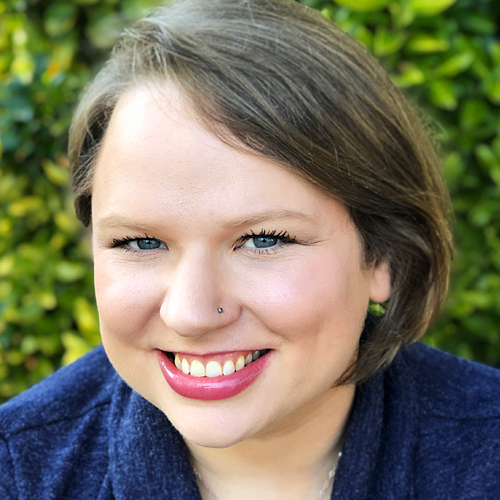
View Details / Enroll
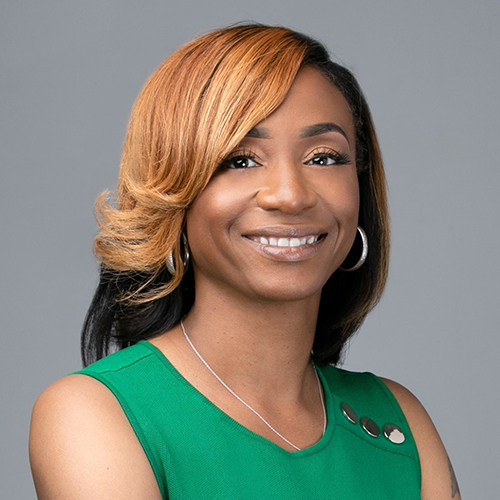
Bridging the Gap: Case Studies in Community Based Lactation Care

Shonte' Terhune-Smith is an International Board Certified Lactation Consultant, postpartum doula and health educator. Over the past 10 years, she has worked diligently in Genesee County to increase breastfeeding rates. She has worked for WIC, in the hospital as a lactation intern and at various pediatric and obstetrician clinics, promoting and educating women about breastfeeding. Normalizing breastfeeding is her passion. Shonte' is the owner of, You Overcoming Lactation Obstacles (YOLO). She empowers and provides timely, culturally competent, evidence-based breastfeeding support and services to Genesee County families and surrounding areas. Shonte' understands that breastfeeding works better when the mother has a village of support to overcome the barriers families face. She is also co-founder of Southeast Michigan IBCLC's of Color.
While breastfeeding initiation rates have increased over the years, there continues to be disparities in duration rates, specifically amongst black and brown families. After families are discharged from the hospital, there is a gap in connecting with equitable outpatient resources. Follow-up appointments after hospital discharge may be days or sometimes weeks away and in that time, difficulties with latching, engorgement, weight loss, and other issues, can spiral out of control. This presentation will demonstrate how these gaps can be bridged with referrals and partnerships with hospitals and providers, with case studies that show how they can positively impact breastfeeding outcomes.

View Details / Enroll
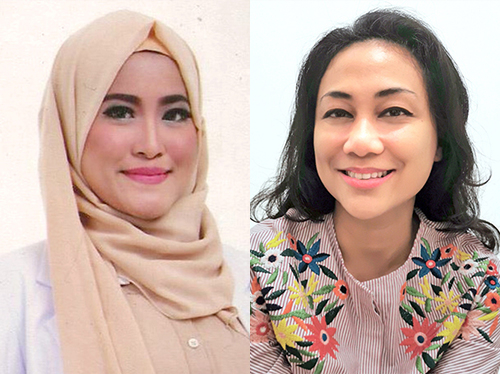
Clinical Case Studies: Ankyloglossia in Babies With Marasmus and Kwashiorkor

Okky Nafiriana, MD is a member of Praborini Lactation Team, Indonesia.
She believes breastfeeding is the best way to feed and nurture baby.
But breastfeeding not always comes easy. Experienced breastfeeding her 2 daughters who were born with tongue and lip tie, made her realize the problems came with the ties and support frenotomy.
She currently works as a lactation counselor in Permata Depok Hospital and Puri Cinere Hospital, Indonesia, where she meets parents and educates the benefit of breastfeeding. She loves to study and currently pursued her dreams to deepen her knowledge in lactation.
Ratih Ayu Wulandari, MD, IBCLC is a
member of Praborini Lactation Team, Indonesia.
She believes breastfeeding is the best way to feed and nurture baby, therefore she became a breastfeeding counselor in 2012 and then IBCLC in 2014.
Experienced breastfeeding her three tongue-tied babies, she understand the pain and support early frenotomy.
She is practicing frenotomy for tongue-tie and lip-tie in Puri Cinere Hospital Depok Indonesia and a private practice. Her publications are including articles for international journal and books for mothers. Japan society of ADEL acknowledges her as Specialist of ADEL (Ankyloglossia with Deviation of Epiglottis and Larynx).
Successful breastfeeding depends on an infant’s latching onto the mother’s breast correctly. A poor latch will cause insufficient milk transfer that will cause poor growth. Each type of mammals produces different components of milk which make it species specific, which adjust to their needs, growth rate and breastfeeding habits. Human breast milk has many benefits for human babies because it contains various substances both as nutrition and as protection.
The authors present two infants who suffered ankyloglossia, which hindered the baby’s ability to breastfeed and eat solid food. These babies were diagnosed with marasmus and kwashiorkor (severe malnutrition). After revision of both the lip- and tongue-ties, supplementation with pasteurized human milk donor, and good complimentary feeding the babies finally reach an optimal growth and development. Learn more about how these two cases were managed to bring the babies back to health.




